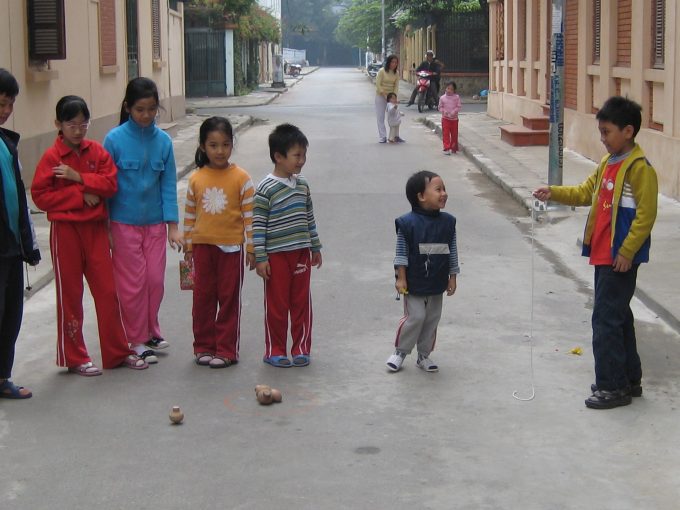
Changing social layers in society are inevitable things during the globalization era. Technological progress becomes the most observable thing to see. The movement from traditional to modern technology is usually called as modernization. This happens due to the innovations of the world scientists which bring some impacts for the entire layers of society. The positive impact of modernization on human beings can be seen from facilitation in daily activities. For example, labor who initially worked manually to produce goods might take several days to complete. Because of technological support, labor now is able to produce more and faster goods.
Technological advances are not only influential in terms of ease of work, but also in affecting the changes in children’s games, such as, gadgets, play stations, and computers. Enjoying such games does not require much energy as we can sit and play by clicking the mouse and stick, and a glass of fresh milk to boost our spirit. This technological process has been changing habits for current generation by reducing their social activities in the community. When modern games are preferred than traditional games, it indirectly fades the social interaction and teamwork taught in traditional games. According to William F Ogburn, any social change will encompass two aspects of culture, including the material and non-material aspects. The material aspect is a variety of cultures in the form of something or objects, while non-material is a value, norm, and behavior pattern. William suggested that these two aspects must go hand in hand to avoid the change of undesired individual behavior.
This phenomenon happens in many countries that are currently or have been experiencing modernization. With the exception to Vietnam, this country tends to retain their culture, especially their traditional or folk games. Hanoi is an example of the cities with survived traditional games in this modern technological era. The persistence of this traditional game cannot be separated from the participation of the government and local people who continue to maintain and preserve it for the next generation. It can be seen from “My Hanoi Club” which aims to accommodate and spread cultural values, history, and lifestyle in Vietnam. My Hanoi club’s Activities are held every weekend around Hoan Kiem Lake. This area is reserved for pedestrians so that any vehicles are not allowed to cross this area.
There are many examples of traditional games played by various circles at this event, including Jump Rope, Mandarin Square Capturing, Stilt Walking, Tug War, and many other traditional games.
Moreover, the Vietnamese government added the curriculum of traditional games for elementary school students in 2007. It is expected that the preservation of traditional games will have an impact on the intellectual life of the children. Since early ages, they have been formed to be a person who can work systematically and able to cooperate through the traditional game. In addition to some of these things, these traditional games will help them to develop their understanding of something, improve their memory, imagination, and certainly help them recognize their culture
There are some traditional games that become the favorite game for elementary school students in Vietnam, such as Follow My Leader, An Quan, Tug of War, Bamboo War. The Follow My Leader game is one of the games that helped the children to improve their intelligence as well as coordination for eyes and hands to introduce solidarity, discipline, and ability to react.
Not only local people enjoying the cultural activities, but also foreign tourists who participated to feel the thrill of playing traditional games with other communities. This activity certainly beautifies the face of Vietnam which seems to maintain their culture. Preservation of traditional games will have an impact on the growing attitude of nationalism and the unifying tool for the Vietnamese as the people can maintain their culture together. In addition, the identity of the nation in the eyes of the world will be recognized if the country has any characteristics that can be maintained or even can be a means to improve the country’s economy, especially in the tourism sector.
—
This article was written by Muhammad Azizurrohman, an undergraduate student of Economics Universitas Muhammadiyah Yogyakarta, Indonesia, while working as an intern at Center for Southeast Asian Social Studies (CESASS).
